cl_maintenanceAndUpdateFrequency
asNeeded
925 record(s)
Type of resources
Available actions
Topics
INSPIRE themes
Keywords
Contact for the resource
orgNameSNIG
Provided by
Years
Formats
Representation types
Update frequencies
Status
Service types
Scale
Resolution
geoDescCode
cartografia
geographicCoverage
geographicCoverageDesc
inspirecore
hvd
referenceDateRange
denominatorRange
resolutionRange
dataPolicy
openServiceType
dataType
dataFormat
-
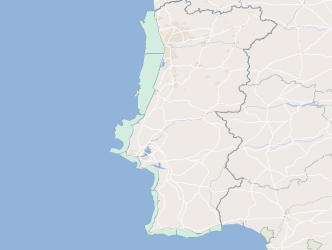
Web Map Visualization, INSPIRE (ISO19128-WMS 1.3.0) compliance, of the: delimitation of portuguese coastal monitoring areas, according to the Law nº 236/98 and the European Directive 2006/113/EC concerning the protection of the aquactic environment and improvement of water quality in order to support shellfish (bivalve and gasteropod molluscs) life and growth and thus to contribute to the high quality of shellfish products directly edible by man, as well as the evaluation of the quality of coastal shellfish waters - Conformity according to Directive 113/2006 / EC, excluding the metals silver (Ag) and Arsenic (As), and fecal coliforms; Artificial reef complexes deployed by IPMA off the Portuguese coast, Algarve and Nazaré, to serve as instruments for the revitalization of coastal ecosystems, coastal fisheries management and integrated coastal management.
-
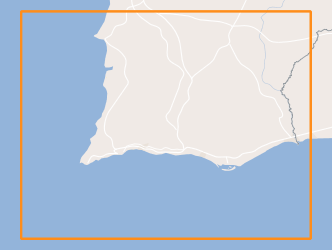
Within Portugal's National Biological Sampling Project (PNAB) a set of activities are conducted in the collection, management and use of biological data, collected from the registered commercial fleet in mainland Portugal (fisheries-dependent data) and several research surveys (independent fisheries data). These activities allow the assessment of the state of fishery resources, population structure, distribution and abundance of resources, diversity and dynamics of biological communities associated with the fishery resources and biological studies (growth, reproduction).The crustaceans campaigns are usually held in June/July with the ship “Noruega” and cover the extension of the Portuguese coast of Alentejo and Algarve.
-
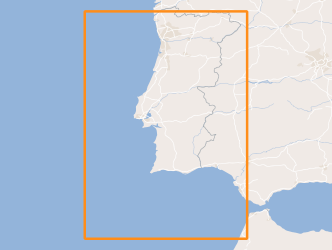
Within Portugal's National Biological Sampling Project (PNAB) a set of activities are conducted in the collection, management and use of biological data, collected from the registered commercial fleet in mainland Portugal (fisheries-dependent data) and several research surveys (independent fisheries data). These activities allow the assessment of the state of fishery resources, population structure, distribution and abundance of resources, diversity and dynamics of biological communities associated with the fishery resources and biological studies (growth, reproduction).The spring acoustic surveys are usually held in April/May with the ship "Noruega" and cover the Portuguese continental waters and the Spanish waters of the Gulf of Cadiz, between 20 and 200m deep.
-
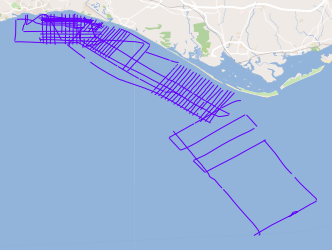
Joint campaigns of the TOPOMED and FREEZE projects sponsored by the Portuguese Foundation for Science and Technology (FCT). These two projects share complementary and objective areas of study. The first focuses on the effects of neotectonics on the evolution of landscape and environments and the second on the investigation of underwater discharges of fresh water.
-
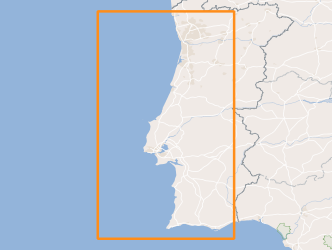
Within Portugal's National Biological Sampling Project (PNAB) a set of activities are conducted in the collection, management and use of biological data, collected from the registered commercial fleet in mainland Portugal (fisheries-dependent data) and several research surveys (independent fisheries data). These activities allow the assessment of the state of fishery resources, population structure, distribution and abundance of resources, diversity and dynamics of biological communities associated with the fishery resources and biological studies (growth, reproduction).Demersal autumn campaigns are usually held in September/October with the ship “Noruega” and cover the full extent of the Portuguese coast (between Caminha and Vila Real Sto António).
-
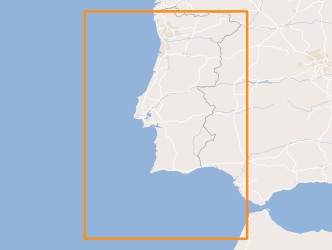
Within Portugal's National Biological Sampling Project (PNAB) a set of activities are conducted in the collection, management and use of biological data, collected from the registered commercial fleet in mainland Portugal (fisheries-dependent data) and several research surveys (independent fisheries data). These activities allow the assessment of the state of fishery resources, population structure, distribution and abundance of resources, diversity and dynamics of biological communities associated with the fishery resources and biological studies (growth, reproduction).The spring acoustic surveys are usually held in April/May with the ship "Noruega" and cover the Portuguese continental waters and the Spanish waters of the Gulf of Cadiz, between 20 and 200m deep.
-
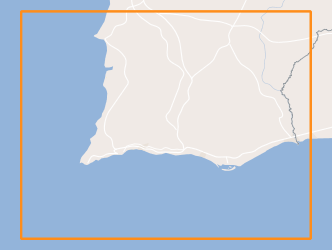
Within Portugal's National Biological Sampling Project (PNAB) a set of activities are conducted in the collection, management and use of biological data, collected from the registered commercial fleet in mainland Portugal (fisheries-dependent data) and several research surveys (independent fisheries data). These activities allow the assessment of the state of fishery resources, population structure, distribution and abundance of resources, diversity and dynamics of biological communities associated with the fishery resources and biological studies (growth, reproduction).The crustaceans campaigns are usually held in June/July with the ship “Noruega” and cover the extension of the Portuguese coast of Alentejo and Algarve.
-
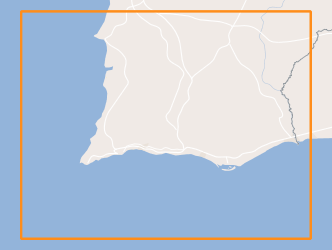
Within Portugal's National Biological Sampling Project (PNAB) a set of activities are conducted in the collection, management and use of biological data, collected from the registered commercial fleet in mainland Portugal (fisheries-dependent data) and several research surveys (independent fisheries data). These activities allow the assessment of the state of fishery resources, population structure, distribution and abundance of resources, diversity and dynamics of biological communities associated with the fishery resources and biological studies (growth, reproduction).The crustaceans campaigns are usually held in June/July with the ship “Noruega” and cover the extension of the Portuguese coast of Alentejo and Algarve.
-
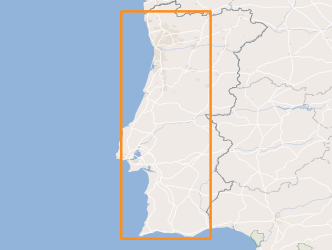
Location of the sampling stations considered in the analyzes from IPMA's Marine biotoxins Laboratory included in the National Bivalve Molluscs Monitoring System.
-

Location of the sampling stations considered in the analyzes from IPMA's Microbiology Laboratory included in the National Bivalve Molluscs Monitoring System.
